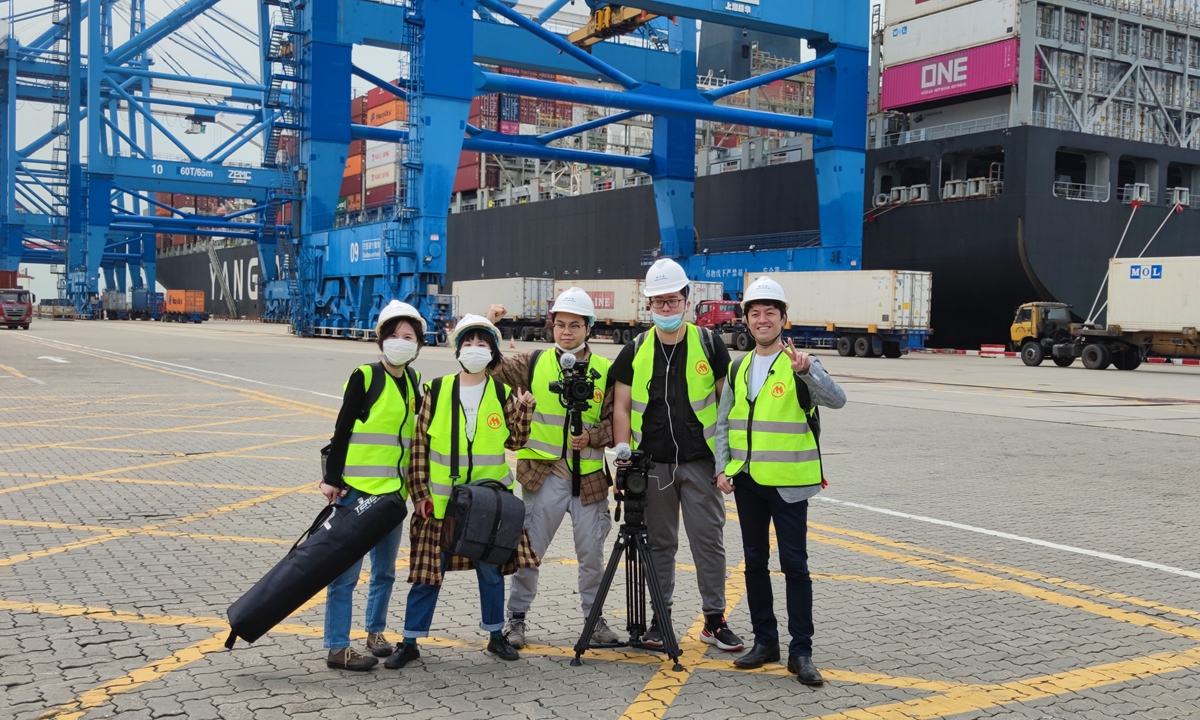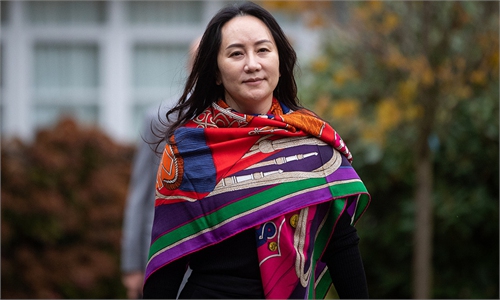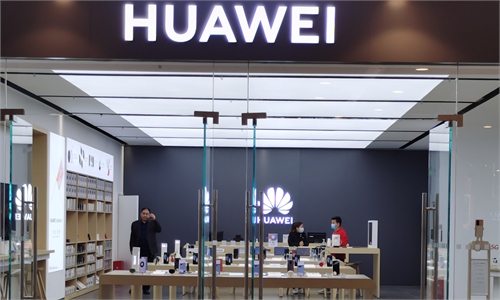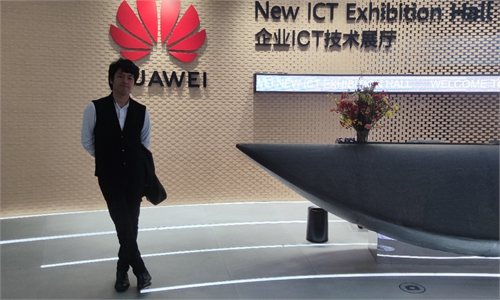ARTS / TV
Japanese documentary director goes behind the scenes at Huawei

Takeuchi (first from right) and his documentary film crew pose for a picture. Photo: Courtesy of Ryo Takeuchi

Japanese director Ryo Takeuchi Photo: Courtesy of Ryo Takeuchi
In the wake of several crackdowns by the US, Chinese telecom giant Huawei's overseas reputation may take a serious hit in the eyes of some Europeans and Americans. Can the company still survive under such pressure and how will it continue to develop? Japanese documentary director Ryo Takeuchi, who is now living in China, entered the company and brought the real Huawei to center stage."First we should know all of it and then we can comment on it," Takeuchi told the Global Times.
In Faces of Huawei, Takeuchi interviews and films nearly 100 employees on different positions from different departments at the company.
After filming, the director reached the conclusion that the long-term vision of the company's employees will enable Huawei to weather this storm. They are not just focused on today, but have their sights trained on a decade or two in the future.
"I filmed the documentary to stimulate entrepreneurs in Japan or other countries because Chinese companies are different from what they remember. Chinese products are no longer low-quality and cheap," Takeuchi said.
"They should recognize and face these changes or they will fall behind," he said.
The documentary series has attracted the attention of several overseas TV stations including those in Japan, Spain, Cambodia and Laos.
Inside look
The first episode, more than 30 minutes long, was released on video platforms such as Tencent and YouTube on March 2.
Takeuchi got permission to enter and film the company at the end of 2020. Huawei promised not to interfere in the shooting and production of the documentary.
In the first episode, he talks with foreign employees at the company, employees in the finance department and Rotating and Acting Chairman Guo Ping.
Tremblay Jean Francois, a Canadian employee, told the director that the bias most Western countries have toward Huawei started from the US and he was shocked over the US politicians' groundless accusations that Huawei products were being used to eavesdrop on US military bases.
US employee Winter Wright said his friends recommended that he leave Huawei because the governments of other countries are afraid of the company since it is considered to have the most advanced technology and support from the Chinese government.
Takeuchi asked the rotating chairman: Is the Chinese government involved in the company?
Guo said that he joined in the company in 1988 when it was 2 years old, so he knows information about every shareholder.
"I can tell you that as of today, 100 percent of the shares of Huawei are owned by Huawei employees and former employees who have retired," the chairman said in the documentary.
Employees in the documentary seemed optimistic and unworried about the fate and development of the company despite the sanctions.
Those who work in the finance department said the company's annual revenue can reach 300 billion yuan (about $50 billion).
When Zhang Yincheng, who leads the department, discussed the survival of Huawei, he was confident and said that the cash flow of the company has not been affected much.
Zhang mentioned "Top Minds," a human resource plan the company launched in 2020, a time when it was having a tough time. The plan aims to attract young talents proficient in AI and telecommunication by offering high salaries.
Trendsetter
The filming of the documentary lasted over three months, with Takeuchi's team traveling to Northwest China's Qinghai Province, Shenzhen in South China's Guangdong Province and Shanghai.
They also planned to visit Huawei's overseas branches but due to the COVID-19 pandemic, that plan was unable to be carried out.
As a bystander, the director said that he felt the sanctions have, to some extent, impacted the company's normal operations.
"For example, researchers who are developing the company's new mobile phones are facing the challenge that they cannot purchase materials such as computer chips due to the sanctions, which has impeded their work, so they have had to figure out some coping strategies," Takeuchi told the Global Times.
But he is still confident that the company will continue its development, since it doesn't follow the latest trends but sets new ones instead.
For instance, before foldable mobile phones came into the market, the researchers had already been using them for a year.
The director said that he thinks the US government's sanctions against Huawei is similar to the sanctions it implemented against Japanese companies back in the 1980s.
"The US government has always been afraid of sharp rise of these new tech companies," said Takeuchi.
When the first episode was uploaded on YouTube, most netizens gave it positive reviews, commenting that the documentary shows a different and very real side of Huawei.
"I like this documentary, which is really different from the media of the US," a YouTube user "EREN KOYUNCU" wrote under the video.
The second episode of the series is set to be released in mid-March.




